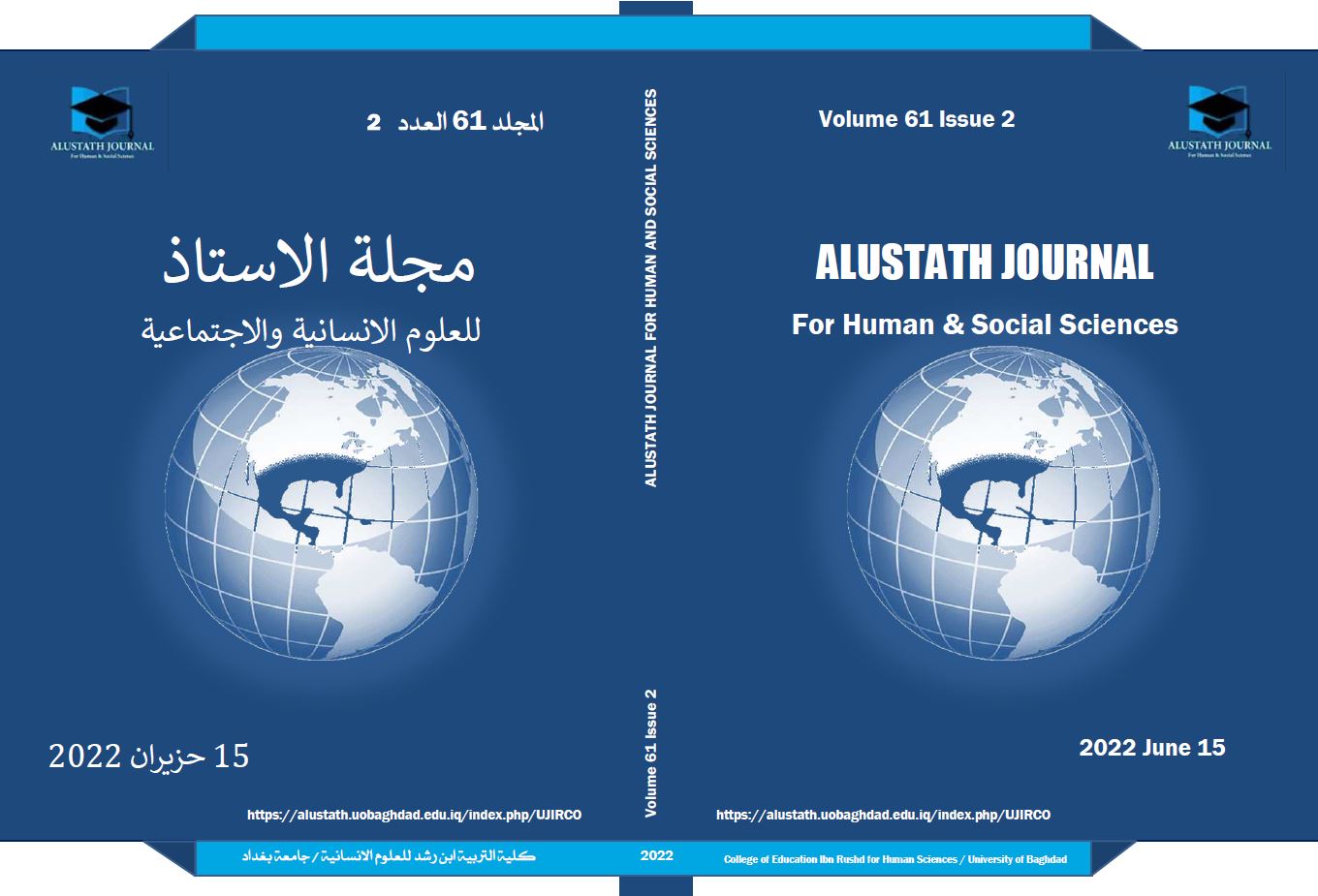The Manifestations of the Mind and its Image of the Andalusian poet: An artistic Psychological Study
DOI:
https://doi.org/10.36473/ujhss.v61i2.1762Keywords:
manifestations, signs of the mind, Andalusian poetryAbstract
The research assumes that the manifestations of the image of the mind among the poets of Andalusia did not receive the attention it deserves due to the lack of research and studies that have been dealt with, whether those studies were single for these manifestations, or they came within other researches that dealt with Andalusian poetry in general.
The induction proved that the units and structures of the poem are imbued with loads or manifestations bearing images of values that are based on the principle of knowledge, foresight and contemplation, and their historical and artistic repercussions in the consciousness of the Andalusian poet, and his ability to employ the details related to it, through the emotional diagnosis and embodiment of its symbols, in the light of the texts that the researcher subjected to contemplation. and the study. Those manifestations of the images of the mind, as the research proved, seemed elusive images that do not give themselves easily, as they are a fertile world and revealing dense poetic connotations, and this matter is not far from poetry, as it is an artistic perception embodied in language, dealing with the world, its things, people, events and relations in a qualitative manner that reflects the desires of The self in nostalgia or joy and sadness, and this research will address those manifestations within psychological approaches, as well as an attempt to mature a perception of how poets build their meanings with artistic dangers. This research distinguishes between two forms of the mind: the first is related to the realistic reference that surrounded the poet's knowledge and perception, and the experiences he went through to filter his psychological awareness. in which they see the divine beauty; So contemplation, contemplation, and a sense of the unity of existence and the divine presence became the guide for these images and manifestations, and for the sake of the topic, we decided to choose poetic models of poets belonging to different eras; Each poet represents the era to which he belongs.
Downloads
References
• The Holy Quran
• Ibrahim, Zakaria (1969). The human problem (philosophical problems). House of Egypt for printing. Cairo.
• Ibn Arabi, Muhyi al-Din Ibn Arabi, (1938). Messages (Letter to Imam Al-Razi). Edition of the Ottoman Encyclopedia. India.
• Ibn Arabi, Muhyi al-Din Ibn Arabi, (1911). Longing translator. Ritold Nixon London.
• Abu Deeb, Kamal, (1986). Persuasive visions towards a structural approach in the study of pre-Islamic poetry. Egyptian General Organization for the Book.
• Ibn al-Khatib, Lisan al-Din (1973). Diwan Al-Saib and Al-Jaham and the past and Al-Kham. Edited by: Muhammad Sharif Qaher. National Company. Algeria.
• Ibn al-Khatib, Lisan al-Din, (1975). Briefing on the news of Granada. Under Professor Muhammad Abdullah Annan. House of Knowledge in Egypt.
• Al-Shennawi, Ali Gharib (2004). Poetry of Ibn Omar bin Harbon Al-Shalabi. Literature library.
• Ibn Manzoor, Abi al-Fadl Jamal al-Din. Arabes Tong . Export house. Beirut.
• Badawi, Abdul Rahman, (1955). Plotinus among the Arabs. Authoring and Translation Committee Press. Cairo.
• Bin Adhari, Abi Al-Abbas Akhmad Bin Muhammad, (2013). The statement and Morocco in the short news of the kings of Andalusia. Bashar Awad. Arab Islamic House. Tunisia.
• Al-Jawahiri, Ismail bin Hammad Al-Jawahiri, (1956). Al-Sahah (The Arabic Taj and Sahah). Edited by: Ahmed Abdel Ghafour Attar. i 1 . Cairo . Intermediate Lexicon, (1980). i 3. Dar Al-Omran. Cairo.
• Khalis, Salah, (1957). Muhammad ibn Ammar al-Andalusi (a historical literary study). Al-Huda Press. Baghdad.
• Dutch, Ond (n.d.). The lexicon of Indexer for pronunciations of The Holy Quran. Tehran.
• Dirani, Afifa Mahmoud, (1964). Ibn Al-Balance alley Al-Diwan. House of culture for printing, publishing and distribution. Beirut . Lebanon.
• Richard, E.A. (1963). Principles of Literary Criticism. Translation by Dr. Mustafa Badawi. The Egyptian Foundation for Writing, Translation and Printing. Egypt Press.
• Suez, Reda Al-Habib (1975). Al-Mu'tamid bin Abbad, King of Seville, Diwan. Tunisian House. Tunisia.
• Al-Shatonofi, Ali bin Youssef, (1330). The joy of secrets. Mustafa Al-Babi Press. Egypt.
• Shennawi, Ali Gharib, (2004). The poetry of Ibn Abi Omar bin Harbon Al-Shalabi. Arts Library. Cairo.
• Al-Dhabi, Al-Mufaddal bin Muhammad bin Yala, (1964). favourites. Edited by: Ahmed Mohamed Shaker. Abdel Salam Haroun, 3rd Edition. House of Knowledge in Egypt.
• Al-Taweel, Youssef Ali, (1990). Ibn Al-Haddad Al-Andalusi, Al-Diwan, 1st Edition. Scientific Book House. Beirut. Lebanon.
• Farhat, Youssef (1994). Ibn Zaydun Al-Diwan. 2nd floor, Arab Book House. Beirut.
• Al-Muqri Al-Tilmisani, Ahmed bin Muhammad, (2013). Bringing his good branch of Al-Andalus Alrtaib. T: d. Ehsan Abbas. Export house. Beirut.
• Al-Nashar, Ali Sami, (1960). Abi Al-Hasan Al-Shashtari: Mansha’at Al-Maaref Edition.
• Al-Nifer, Muhammad Tawfiq, (1997). Ibn Zumrk Andalusian Diwan. i 1 . Islamic West House.












